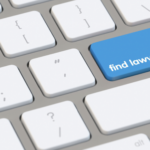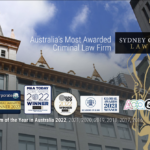How Can I Find Out if Someone is a Lawyer?

On 24 January 2023, a defended criminal law hearing was stopped in its tracks in Downing Centre Local Court after information was received to suggest the young man who was presenting himself as a practising lawyer was never in fact qualified to do so.
The man was well into representing a cafe owner who was defending a charge of contravening an apprehended violence order, when the information came to light.
The frustrated magistrate ultimately adjourned the case for inquiries to be made into the young man’s status, and our state’s regulatory body for legal practitioners is currently investigating the situation.
Could impact on many clients and the legal profession as a whole
It is alleged the young man had been employed by a criminal defence law firm for some time, who had marketed and presented him to the public and to clients as ‘Junior Associate’.
Following mainstream media reporting of the case, our state’s legal regulator – the Law Society of New South Wales – confirmed the young man “… does not hold a current NSW practising certificate granted by the Law Society Council.”
This means the clients of the firm were represented by someone who was not qualified to do so, raising the potential of reviews and appeals, and indeed questions of ethics for the firm in question, including the duty to act in the best interests of clients by undertaking proper due diligence.
Over and above this, the situation has the potential to bring the legal profession into disrepute by adversely affecting the public’s confidence that the person advising and representing them is a genuine lawyer.
Ethical obligations
Lawyers in New South Wales governed by a number of pieces of legislation including the Legal Profession Uniform Law 2014 (or the ‘Uniform Law’) which, together with its regulations, set out among other things the rules relating to admission as a lawyer, practising certificate requirement, the operation of law practices, requirements regarding trust funds, costs billing, advertising and so on.
In addition to this, the Legal Profession Uniform Australian Solicitors’ Conduct Rules 2014 (or the ‘Conduct Rules’) impose strict ethical obligations on lawyers, including duties to:
– Ensure the courts and administration of justice are paramount, and to therefore avoid anything that will adversely affect them,
– Deliver legal services competently, diligently and as promptly as reasonably possible, which includes undertaking proper due diligence,
– Act in the best interests of clients,
– Provide clear, complete and timely advice, and
– Uphold ethical obligations including those relating to confidentiality and conflicts of interest.
The situation involving the young man raises questions about the extent of compliance with a number of these duties.
Lawyers must hold a practising certificate
To practise as a solicitor in New South Wales, a person must hold either an Australian practising certificate issued by the Law Society’s Council or a practising certificate issued by the designated regulatory authority in another Australian jurisdiction.
Most Australian States and Territories have very similar laws and regulatory standards, although they do differ from time to time.
How can I find out if someone lawyer?
The best way to check is by searching the law society’s register of solicitors, a link to which is contained in the table below.
It lists all such practising lawyers as well as contains other information about the lawyers and law firm they are practising under, including whether the lawyer has been certified as an Accredited Specialist in a particular field of law such as criminal law or indeed personal injury law or family law.
It should, however, be noted that lawyers who hold practising certificates outside New South Wales but within Australia are permitted to practise in any state or territory, and a member of the public cannot ascertain whether a person is an ‘interstate lawyer’ by undertaking a search of the New South Wales register.
A central register of Australian lawyers is desperately needed
Indeed, it is long overdue for Australia to introduce a national register of all lawyers across the country, in order to enable members of the public to quickly and easily check whether a person who presents themselves as a lawyer is actually licensed to be one.
Until that happens, here are the details of current registers of lawyers, be they barristers or solicitors, across the nation.
| State or territory | Lawyer type | Name of register | Link |
| New South Wales | Solicitors | Law Society of New South Wales Register of Solicitors | www.lawsociety.com.au/register-of-solicitors |
| Barristers | New South Wales Bar Association Find a Barrister | https://find-a-barrister.nswbar.asn.au/ | |
| Victoria | Solicitors | Law Institute Victoria
Find Your Lawyer Referral Service |
https://www.liv.asn.au/FindYourLawyer |
| Victorian Legal Services Board | https://lsbc.vic.gov.au/consumers/registers | ||
| Barristers | The Victorian Bar | https://www.vicbar.com.au/find-barrister | |
| Queensland | Solicitors | Queensland Law Society | https://www.qls.com.au/find-a-solicitor/search |
| Barristers | Bar Association Queensland | https://qldbar.asn.au/barrister-search | |
| South Australia | Solicitors | The Law Society of South Australia | https://www.lawsocietysa.asn.au/Public/Community/Register_Practising_Certificates.aspx |
| Barristers | South Australian Bar Association | https://sabar.org.au/barrister-search/#!directory/map/ord=lnm | |
| Western Australia | Solicitors | The Law Society of Western Australia | https://www.lawsocietywa.asn.au/find-a-lawyer/ |
| Barristers | Western Australian Bar Association | https://www.wabar.asn.au/find-a-barrister/ | |
| Tasmania | Solicitors | The Law Society of Tasmania | https://www.lst.org.au/find-a-lawyer/ |
| Barristers | Tasmanian Bar | https://tasbar.com.au/barristers/ | |
| Australian Capital Territory | Solicitors | ACT Law Society | https://www.actlawsociety.asn.au/find-a-lawyer |
| Barristers | ACT Bar Association | https://www.actbar.com.au/barristers/find-a-barrister/ | |
| Northern Territory | Solicitors | Law Society Northern Territory | https://lawsocietynt.asn.au/index.php/current-nt-legal-practitioners/ |
| Barristers | Northern Territory Bar Association | https://ntbar.asn.au/ |
Lawyers must keep their practising certificates current
Lawyers are required to keep their practicing certificates current if they want to remain able to represent clients in any legal matters, not just those before the court – this includes providing advice on matters such as a matter such as a will or purchasing property.
You may find the term solicitor used on many websites, and that’s because the term lawyer is used to encompass the roles of solicitors and barristers.
Lawyer, solicitor and barrister
The term lawyer refers to a person admitted to practise the law – including solicitor, barrister, magistrate and judge.
In New South Wales, the Law Society permits those who are often referred to solicitors to market themselves as and to practise as both a barrister (a courtroom lawyer) and solicitor (a lawyer who solicits or ‘gets’ clients, advises them, works on their cases etc), which means solicitors can legally take on all of the responsibilities in court if they are suitably specialised and experienced to do so, without the need to engage a barrister.
A barrister is someone who typically specialises in courtroom work, rather than getting clients, providing initial advice, and undertaking legal work on cases including less-serious court work. These people stand out because they wear the traditional wig and gown in the higher courts.
Barristers are sometimes used in serious, complex and lengthy District and Supreme Court trials, and will be briefed and instructed by the lawyer who dealt with the matter before that point; that is, who attended to legal work and pre-trial court appearances.
Going through legal proceedings can be difficult and stressful, not to mention expensive, and it is important to have confidence that the person handling a situation that can have enormous ramifications on your life is suitably qualified and experienced.







